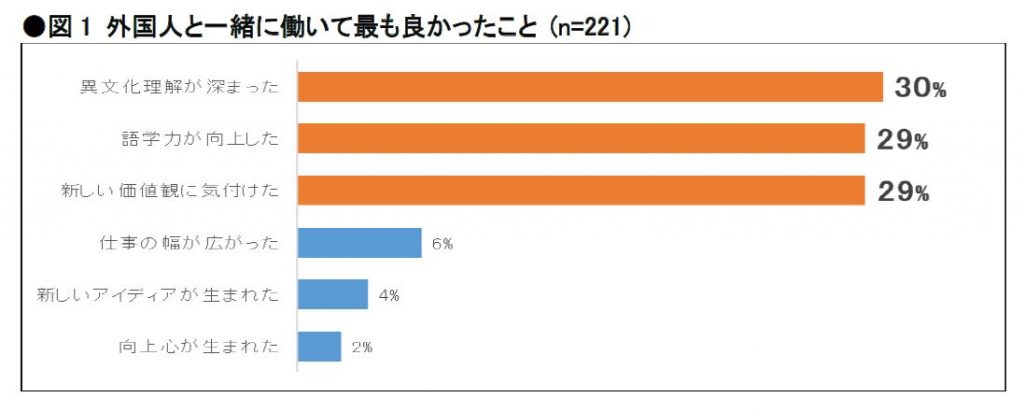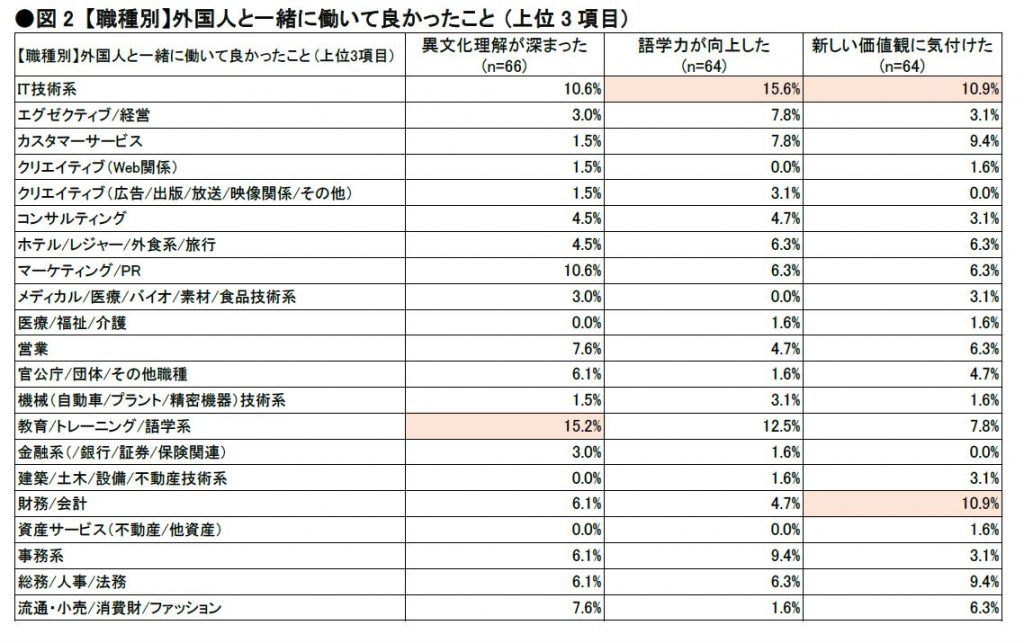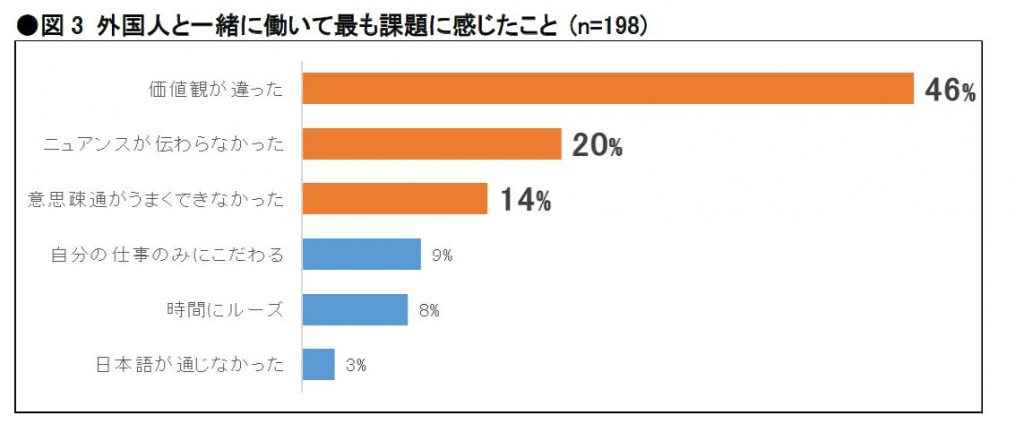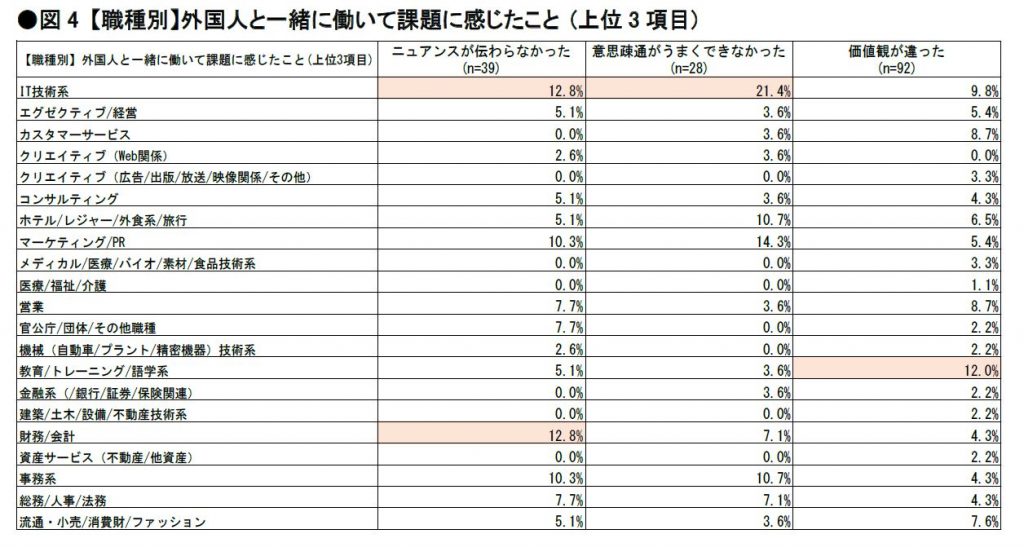How do Japanese employees feel about working with foreigners?
The company Human Global Talent, run by the bilingual job hunting site Daijob (a subsidiary of Human Holdings), conducted a survey recently regarding the good points and issues that Japanese employees feel when they work with foreigners.
First, regarding the good points about working with foreigners, 30% of respondents answered “I deepened my understanding of other cultures.” This was the answer that got the highest response rate. Following that, “I improved my language ability” and “I realized differences in values” were at 29% each.
Respondents in the IT industry answered this question with “I improved my language ability” and “I realized differences in values” at 15.6% and 10.9% respectively. Furthermore, in education, training, and language related jobs, the highest response was “I deepened my understanding of other cultures” at 15.2%. In the finance and accounting industries, the highest response was “I realized differences in values” at 10.9% – the same percentage as the IT industry.
The number of respondents who answered “I improved my language skills” was especially high at 90%. This result shows the necessity of mutual understanding between Japanese and foreign workers, perhaps due to the necessity of improving work efficiency. The survey result for this question would be connected to that.
 Chart 1 – What are the good points of working with foreigners?
Chart 1 – What are the good points of working with foreigners? Chart 2 (Broken down by industry) – What are the good points of working with foreigners? (3 Highest ranking answers)
Chart 2 (Broken down by industry) – What are the good points of working with foreigners? (3 Highest ranking answers)Following that, the survey asked about issues that Japanese employees felt when working with their foreign colleagues. The highest response was “Our values were different” at 46%. Next was “We couldn’t communicate the nuance of what we said” at 20%, and “It was hard to reach a mutual understanding” at 14%.
For this topic, in the IT industry, “It was hard to reach at mutual understanding” was at 21.4%, and “We couldn’t communicate the nuance of what we said” was at 12.8%. These were the top answers. Also, in the education, training and language industries, 12.0% of respondents answered “Our values were different.” In the finance and accounting industries, the highest response was “We couldn’t communicate the nuance of what we said” at 12.8%.
 Chart 3 – What were the issues you felt most when working with foreigners?
Chart 3 – What were the issues you felt most when working with foreigners? Chart 4(Broken down by industry)- What were some issues you felt when working with foreigners? (3 highest ranking answers)
Chart 4(Broken down by industry)- What were some issues you felt when working with foreigners? (3 highest ranking answers)Finally, the survey asked respondents what the “most important thing is when you work together” was. The answers to this question were freely written in by respondents. Many respondents wrote in answers about “mutual understanding.” For example, some wrote about “respecting each other’s cultural differences” and “understanding foreign cultures and ways of thinking.” Besides that, many answered “not treating them like foreigners.” In past surveys by Human Global Talent, many foreign respondents answered regarding Japanese companies “please don’t treat us like foreigners.” This shows that while it’s important to be aware of the other person and their cultural differences, it’s important to not go too far in this regard.
This survey was conducted from May 17 to May 21, 2019. It was aimed at Japanese nationals who work with foreign colleagues, and was conducted through the internet on the website Daijob.com. A total of 311 people answered the survey.



















